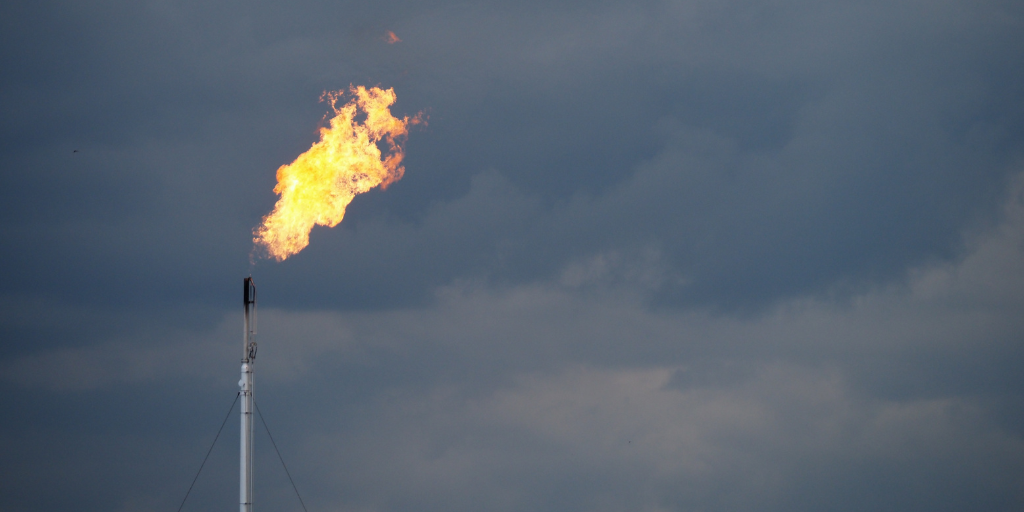Shale gas extraction, or fracking, is so infamous for its environmental impacts that it is banned in multiple European countries. In Hungary, however, the authorities are looking to expand a fracking project near the border with Romania, despite it already worsening the climate crisis and threatening local agriculture. Campaigners are challenging these risky plans.
Eszter Galambos, MTVSZ – Friends of the Earth Hungary | 13 February 2025

Author: Théophile Humann-Guilleminot, CATF
Ever since the Hungarian government began promoting the Corvinus fracking project in southeastern Hungary, Friends of the Earth Hungary, Bankwatch and other environmental groups have sounded the alarm over this disastrous fossil energy project. Now, Corvinus Energy – a joint venture between state-owned MVM CEEnergy and US-based Horizon General contractors – is set to dramatically increase shale gas production.
Environmental concerns prompt legal action
In early January 2025, after the authorities approved a massive expansion of the shale-gas operation in Békés county, Friends of the Earth Hungary filed an administrative appeal with Hungary’s energy ministry.
Fracking, a method used to extract fossil gas or oil from shale, is notorious for its adverse environmental impacts. In recent years, at least 12 EU countries have restricted shale gas extraction by winding down operations, imposing moratoria, or outright banning the practice. Currently, Corvinus is understood to be the only active fracking project in the EU.
Fracking presented as a false solution
The Corvinus fracking under the guise of an energy emergency measure, with extraction commencing in February 2023. Yet, civil society groups have long warned that the intervention would likely aggravate water stress in the already drought-stricken region and undermine Hungary’s shift from fossil-fuel dependence to a sustainable economy based on renewable energy.
Indeed, initial measurements have already shown that shale gas extraction operations in Békés have worsened air pollution and led to significant emissions of the potent greenhouse gas methane through In fact, in 2023 alone, a quarter of the extracted gas – 18 million cubic metres – was wasted through flaring, a practice that breaches the EU’s methane regulation.
Water scarcity is already affecting local agriculture. Last year, precipitation loss in the county ranged between 150 and 200 millimetres, missing around 25 per cent of the annual average, with maize and sunflower growers reporting major yield losses. Increasing shale gas production would put an enormous strain on dwindling water resources, further impacting farmers in the region.
Government plans further expansion
Despite these concerns, the county authorities have greenlit a major expansion of the fracking project. During its first year and a half in operation, Corvinus produced merely 100 million cubic metres of fossil gas. Now, Corvinus Energy is seeking to extract 2 million cubic metres of gas and 1,800 tonnes of oil per day, along with a fourfold increase in the capacity of the Sarkad–Nyékpuszta gas processing facility .
And the government is on board. In December 2024, the county authorities granted a permit for the massive expansion, but without conducting a proper environmental impact assessment. Instead of accounting for the full range of impacts from drilling several dozen new wells at a depth of between four and five kilometres and ramping up fracking operations, the assessment primarily focused on the expansion of the gas facility.
Flawed environmental impact assessment
Worse still, the assessment was carried out a year and a half after fracking on the site had already begun. The document contains no mention of the project’s total water consumption or its expected total carbon dioxide and methane emissions. Additionally, the assessment neglected to consider the transboundary effects of the project, located a mere 13 kilometres from the Romanian border.
Crucial information on this reckless project, fast-tracked only because of the project’s ‘national economic priority’ status, have yet to be disclosed. Currently, there is no publicly available information concerning the timeline for the expansion, the exact number and location of planned shale gas wells, the potentially hazardous chemicals to be used in the fracking process, or the total amount of water to be drawn.
Calling a halt
In an effort to obtain this information, we requested the public mining documents pertaining to the project, but the national mining authority rejected our request without offering any explanations. Subsequently, we petitioned the Metropolitan Court of Budapest, and in late January, the judges ruled in our favour, ordering the authority to provide all relevant documentation concerning the project.
The Hungarian government must halt, not expand, fracking. The first step is for the Deputy State Secretary, who is responsible for handling cases involving the environmental authorities, to revoke the illegitimate authorisation of the Corvinus project’s expansion.
Never miss an update
We expose the risks of international public finance and bring critical updates from the ground – straight to your inbox.
Theme: shale gas | fossil gas | Hungary
Project: Fossil gas
